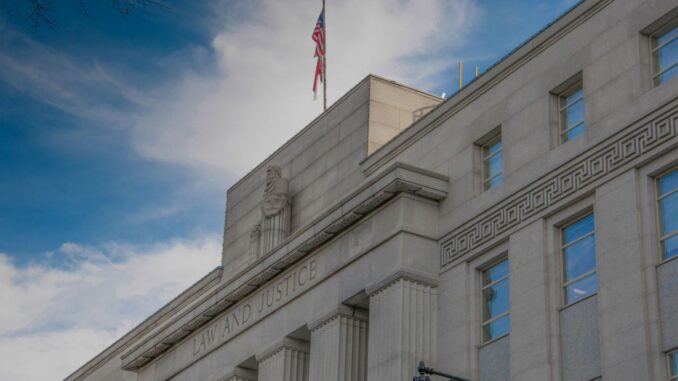
RALEIGH — A request to expedite trial proceedings by plaintiffs in the ongoing case involving two constitutional amendments passed by voters in 2018 was rejected by the N.C. Supreme Court last week.
On Nov. 15, attorneys representing the N.C. NAACP filed a Writ of Mandamus in the case involving two state constitutional amendments approved by voters in 2018. In their request, the Plaintiffs claim a panel of N.C. Court of Appeals judges are delaying the transfer of the case to a trial court in Wake County and asked the state supreme court to force the transfer.
“Given the additional factual inquiry that this Court has ordered the trial court to conduct, additional delays in resolving this case may be inevitable,” the Plaintiff’s request states. “But there is no reason to allow the inexplicable delay caused by the Respondent Court of Appeals to drag on indefinitely, blocking the trial court from fulfilling this Court’s order.”
The amendments being sued over, Voter ID and a state income tax cap, were among six on the ballot that year. The Voter ID amendment passed with 55% of the vote and the tax cap amendment passed with 57% of the vote. The tax cap amendment lowers the state’s current income tax rate cap from 10 percent to 7%.
In mid-August, the N.C. Supreme Court ordered the case to be remanded back to the trial court. The remand order did not have a deadline for action and was the result of a 4-3 split ruling with a court makeup of four Democratic justices to three Republicans. That court membership has since changed following the Nov. 8 General election to a 5-2 Republican majority.
The NC NAACP’s case hinges on the idea that the state legislature is a “racially gerrymandered,” body and therefore an illegitimate body and argues that on that basis the amendments should be tossed out. Spectators of the case have pointed out that by the logic of that argument, the rest of the amendments should also be tossed out as well as all laws passed by the General Assembly.
The request was dismissed in a short order issued on Nov. 17 by Associate Justice Phil Berger, Jr. that read, ”Dismissed as moot by order of the Court in conference, this the 17th of November 2022.”
